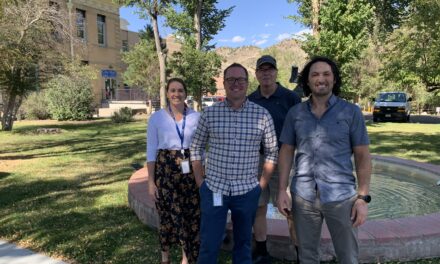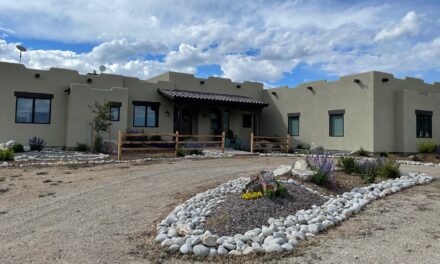Should voters allow the city to provide broadband internet services?
In 2005, the Colorado General Assembly passed Senate Bill 152. The bill prevented local governments from engaging in efforts to provide high-speed internet, telecommunications and cable television services.
Senate Bill 152 prohibits local governments from:
- Investing in broadband services and infrastructure for homes and businesses.
- Providing broadband services to businesses and households.
- Creating a private-public partnership that would leverage government infrastructure to
provide affordable and high-speed internet service
However, the law allows local governments to obtain exemption from SB-152 through a local ballot initiative to opt out of these restrictions.
Senate Bill 152 passed in 2005 and defines high-speed internet as 256 kbps, while advances in broadband technology have established standard speeds of 25 Mbps, which are not available in Salida.
Voters in 122 Colorado towns, cities and counties have exempted themselves from SB‑152 by passing ballot initiatives that permit their local governments to support development of improved broadband services, often through public-private partnerships.
Ballot Question A asks Salida residents to join these 122 communities by allowing the city to opt out of SB-152 in order to facilitate improved broadband service in Salida.
Craig Settles, a consultant and broadband industry analyst, said, “The return on investment (in rural communities) is anywhere from five to 10 years, and that’s not acceptable in a world where one- or two-quarter profit is the norm. … People are going to, at the very least, take it into their own hands to negotiate for favorable terms for getting broadband or do it themselves.”
Under SB-152, municipalities can offer free internet service in city libraries, parks and community centers, but that service cannot exceed speeds of 256 kbps.
Given the frequency of Salida’s recent internet outages, which affected 911 emergency communications, finding anyone willing to speak out against this initiative proved problematic.
The question on the ballot reads:
“Shall the city of Salida, without increasing taxes by this measure, and to restore local authority that was denied to local governments by the Colorado General Assembly and foster a more competitive marketplace, be authorized to provide high-speed internet, including improved high bandwidth services based on new technologies, telecommunications services, and/or cable television services to residents, businesses, schools, libraries, non-profit entities and other users of such services either directly or indirectly with public or private sector partners, as expressly permitted by Article 27, Title 29 of the Colorado Revised Statutes?”
The general election ballot in November will include a similar question asking Chaffee County voters whether or not to opt out of SB-152.
Editor’s note: This article is part of a series of articles presenting arguments in favor of and opposed to each question on the ballot for the Sept. 25 Salida special election.












Recent Comments